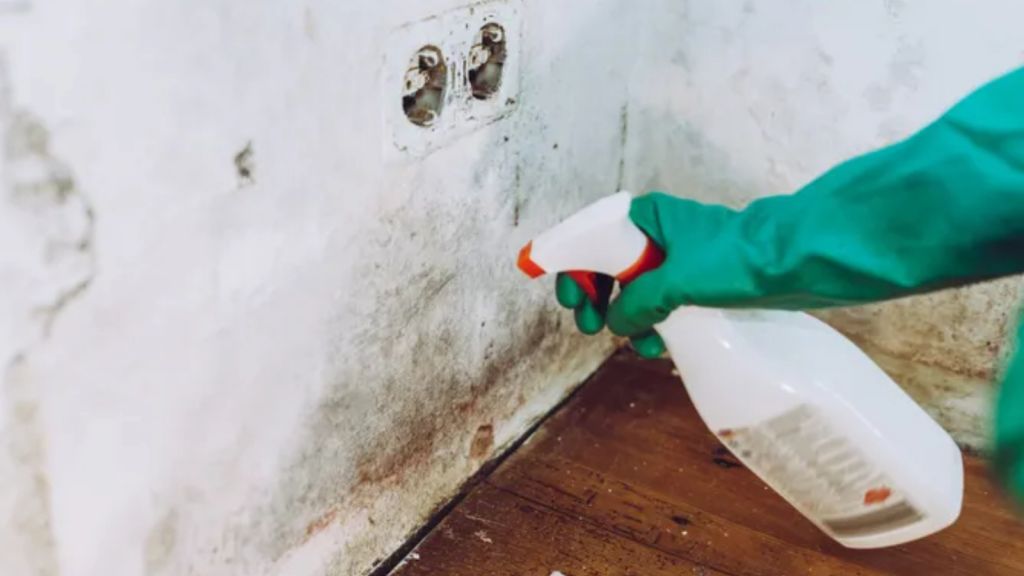
The UK is a cold, damp place, especially in winter ― so it makes sense a lot of us are struggling with mould at the moment.
If you’re facing a black wall of spore shame at the moment, you might be tempted to clean it with vinegar or bleach ― two common tactics to “remove” the issue.
But according to Danny Pen, a heating and plumbing expert and president of New Era Plumbing & HVAC, the cleaning products we turn to in our hour (or month, or season) of need may not be the best choice.
Speaking to HuffPost UK, the pro said that “bleach and vinegar can sometimes make situations with black mould even worse.”
Why don’t bleach and vinegar make black mould go away?
According to Danny, the potent cleaning products’ power can actually be their downfall.
Stating that they may be especially likely to make mould worse if applied to “porous surfaces, e.g. untreated wood, laminate, drywall, granite, etc,” the plumbing company president told us that the products don’t actually remove mould.
“Bleach only removes mould from the surface but leaves spores behind, and vinegar can trigger mould to release additional spores as a defence mechanism,” he explained.
“Moreover, mixing those two [vinegar and bleach] is even worse because it creates toxic chlorine gas, which makes the situation even worse. Plus, both can add additional moisture, encouraging future mould growth.”
So what should I use instead?
To truly banish those annoying spores, Danny says you have to turn to professional-grade products.
“The better alternative will be professional-grade mould cleaners (with fungicidal properties) or enzyme-based mould removers,” he explained.
“Professional-grade cleaners are targeting the underlying conditions mould needs to survive: they neutralise mould’s food sources, such as organic residues left behind on porous surfaces like wood or drywall, making it harder for mould to return.”
Keep an eye out for products that use a technology called microencapsulation, Danny adds, as these “trap mould spores, preventing them from spreading during cleanup.”
Bio-based cleaners are safer for kids and pets, he adds, while ”). Enzyme-based removers use natural enzymes to break down mould at a molecular level, penetrating deep into porous materials like wood or drywall.”
“Unlike bleach, they don’t release toxic fumes or trap spores, and they prevent regrowth by neutralising mould’s food source,” Danny added.
If all that doesn’t work, he ended, you might need to call in the pros.


